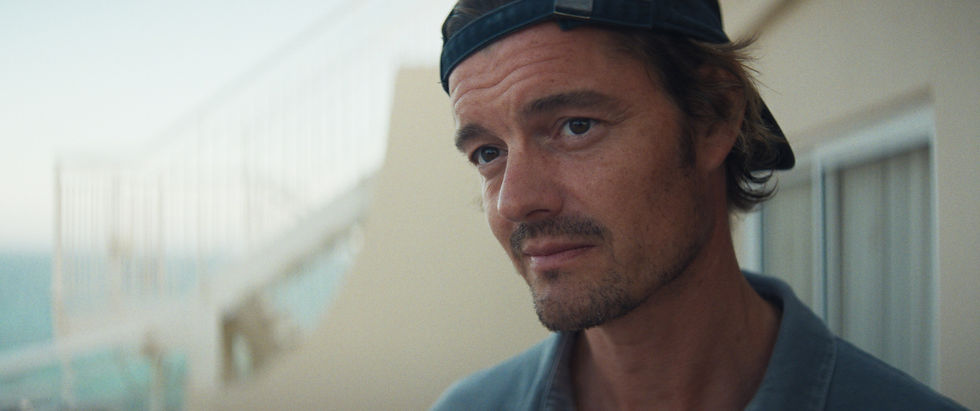THE ROSSELLINIS
- Kathleen Bondar

- Nov 11, 2021
- 3 min read
Updated: Sep 10, 2022
DIRECTOR: ALESSANDRO ROSSELLINI
WITH: ISABELLA ROSSELLINI; INGRID ROSSELLINI; RENZO ROSSELLINI; NUR ROSSELLINI
ITALY 2021; 90 MINS
CURZON HOME CINEMA

REVIEW by KATHLEEN BONDAR from RAINDANCE FILM FESTIVAL 2021
There is something underlying this autobiographical documentary from Alessandro (son of Renzo, son of the lionised Italian film director Roberto Rossellini), which never clearly unfolds. Alessandro (Ale) is racked with anxiety which he suggests is something to do with belonging to a celebrity family and feeling the pressure to succeed. He names it “Rossellin-itis”. In his quest to find out why he feels this way and if others in his family feel it too, he interviews his father, his mother, his aunts, uncle and his cousins. Admittedly, the impact of belonging to a famous family does affect every one of them, but Alessandro has a particular anxiety rooted in his sense of failure owing to his former addictions and his comparatively plain looks in the face of outstanding familial beauty. At least, that's the surface message Alessandro conveys.
Alessandro’s grandfather Roberto Rossellini came to fame with his seminal film the anti-fascist Roma città aperta (Rome, Open City 1945). Such was the success, he is credited with being the most prominent film director in the Italian Neo-Realist movement.
His family life was just as notorious. He had four wives and six children. Roberto Rossellin’s most famous wife was the Hollywood star Ingrid Bergman (Casablanca 1942); his most famous daughter the model and actor Isabella Rossellini who continues the progeny with celebrity model children.
The white, Swedish Rossellini’s are all blessed with such stunning beauty that their lives radiate sheer success as if in synchronisation, although it transpires that Isabella Rossellini’s twin sister Ingrid like Alessandro lacks self-confidence. Contrary to appearances, Ingrid insists she is not a beauty and so she focussed on becoming an academic. Isabella Rossellini’s contentious arthouse film in which she films her father's big fat belly (and describes how he bizarrely enjoyed the idea of being a sow suckling his children like piglets), ignited a feud with her twin who was angry about the portrayal.
Alessandro’s father was also a renowned film director. However, Renzo Rossellini, whose salacious reference to women in the documentary is cringingly dated, never reached the heights of his father.
Eventually we meet Ale’s African American mother, a former “dynamite dancer”, as she matter-of-factly describes herself. It is one of the most poignant parts of the documentary. Now disabled and a recovering addict she is visibly perishing in a modest home for the elderly in the States. Her eyes light up when she meets her son (inexplicably after an eight-year hiatus).
Racism is an unspoken word in the documentary but in this instance, it almost shouts from the page, or rather the screen. We learn how Renzo’s mother conspired to undermine her son’s relationship with Alessandro's black mother.
We also learn that the director's aunt Raphaella, now calling herself Nur after converting to Islam, didn't feel welcome by members of the Italian family. “I didn’t feel the family was a safe place.” Roberto Rossellini married Indian screenwriter Sonali Das Gupta, adopted her son Gil and then the couple conceived Nur. Like Renzo, Gil wanted his father’s approval. Even when he was tragically disabled by a terminal disease, he endeavoured to be a great film director and make his film Kill Gil Vol.1 2005.
By the end of the documentary the suspicion of racism as Alessandro's “Rossellin-itis” is diffused not least because Isabella Rossellini’s adopted son Roberto is mixed race and shines with the benevolence of someone blessed with beauty and success and not a shred of "itis". He high-fives Alessandro’s little son during an Italian Vogue photoshoot. What is more, it turns out Alessandro’s aunt Isabella went to great lengths financially and emotionally to help her nephew when he was an addict. Her words at a family get-together for the documentary “do you now believe that we all love you?” resounds for the visibly teary Alessandro.


